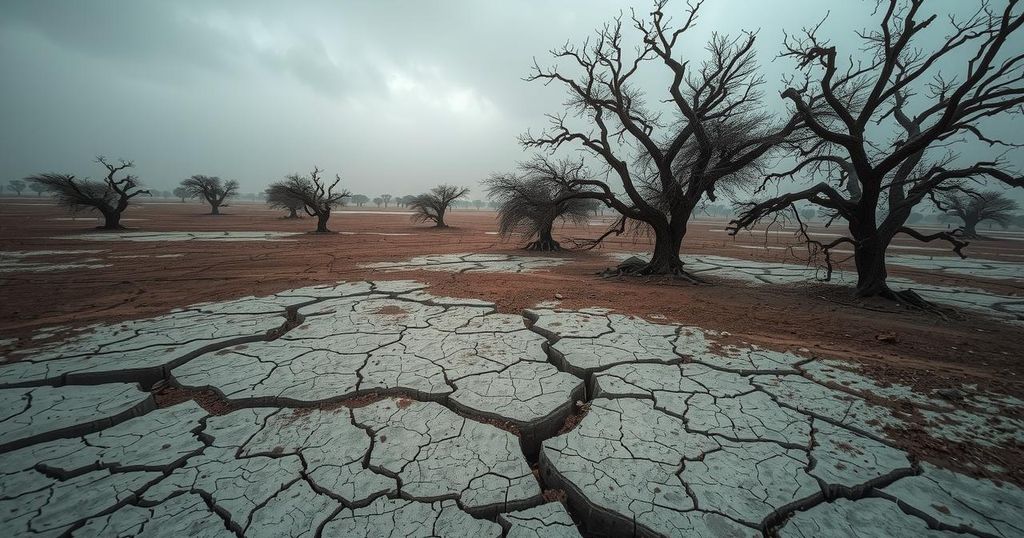UN rights chief Volker Türk warns of severe escalation in violence in eastern DRC due to the M23 conflict. Nearly 3,000 deaths have occurred since January, with dire humanitarian conditions. The situation necessitates international action to prevent further deterioration, as highlighted by escalating attacks, sexual violence, and the struggle for humanitarian access amid political unrest.
The UN human rights chief, Volker Türk, has raised significant alarm regarding the escalating violence in the eastern Democratic Republic of the Congo (DRC), chiefly attributed to the Rwanda-backed M23 offensive. Speaking at a Special Session of the Human Rights Council in Geneva, he warned that without intervention, conditions in the DRC could deteriorate further, potentially impacting neighboring regions as well. The conflict has led to nearly 3,000 fatalities and thousands more injured since January due to attacks concentrated in populated areas.
The eastern DRC, particularly North Kivu and South Kivu, has a protracted history of instability exacerbated by numerous armed groups, driving hundreds of thousands to flee their homes. The M23 rebels, who are predominantly Tutsi, have escalated their offensive since late January, claiming control over strategic locations including those near Goma. A draft resolution introduced during the session condemned Rwanda’s military support for M23 and urged both Rwanda and the rebels to cease their hostilities and grant humanitarian access to the affected areas.
During the emergency session, Mr. Türk highlighted alarming incidents, including the bombing of two hospitals in Goma, which resulted in multiple casualties. He also mentioned a tragic prison break where numerous female inmates were reportedly raped, with many believed to have died in a subsequent fire under suspicious circumstances. Türk warned that sexual violence, a distressing aspect of the conflict, is likely to worsen amid ongoing hostilities.
Bintou Keita, the UN peacekeeping mission leader in the DRC, underscored the catastrophic situation in Goma, now under M23 control. She reported dead bodies in the streets, with reports of forced recruitments of youth and rising threats to human rights defenders and journalists. The humanitarian implications are dire, with increasing health risks including cholera outbreaks, disruption of education, and rampant gender-based violence.
In response to the crisis, DRC’s Minister of Communications, Patrick Muyaya Katembwe, condemned foreign support for armed groups like M23, attributing the ongoing violence to Rwanda’s involvement over the past three decades. Conversely, Rwanda’s UN ambassador refuted these allegations, claiming an imminent aggression against Rwanda by armed groups backed by Kinshasa. He asserted that military buildups near the border pose a direct threat to Rwanda’s security.
Mr. Türk emphasized the necessity for international engagement to address the complexities of the DRC conflict, acknowledging the global interconnection to the issue. He noted that many products consumed globally, including mobile phones, are derived from the mineral wealth of the eastern DRC, implicating a broader responsibility to act against the ongoing humanitarian crisis.
The article addresses the critical humanitarian crisis in the eastern DRC, which has been exacerbated by violent hostilities fueled by the M23 rebel group, allegedly supported by Rwanda. The region is rich in minerals, and the ongoing conflict has resulted in significant loss of life and forced displacement, drawing the attention of the international community and the UN human rights officials. Recurrent patterns of violence, sexual abuse, and calls for humanitarian access form the backdrop of the current situation, demanding immediate action to prevent further deterioration.
In conclusion, the ongoing violence in the eastern DRC presents a grave humanitarian crisis requiring urgent international intervention to prevent further loss of life and to address the persistent violations of human rights. The complex interplay of local and regional dynamics highlights the need for a collaborative approach to restore peace and ensure the protection of vulnerable populations. The responsibility of the international community is clear in mitigating the crisis and facilitating humanitarian aid to those in desperate need.
Original Source: news.un.org






